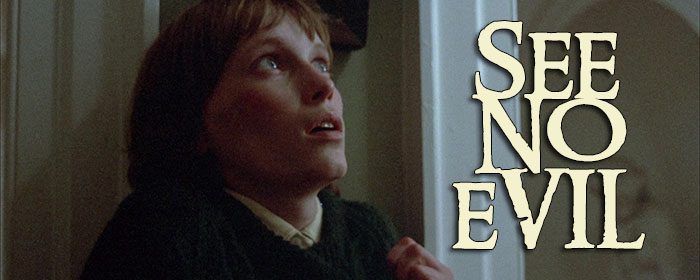
Color, 1971, 89 mins. 11 secs.
Directed by Richard Fleischer
Starring Mia Farrow, Dorothy Alison, Robin Bailey, Diane Grayson, Norman Eshley, Paul Nicholas, Brian Rawlinson, Christopher Matthews
Indicator (Blu-ray & DVD) (UK R0 HD/PAL), Carlotta (Blu-ray & DVD) (France RB/R2 HD/PAL), Sony (DVD) (US R0 NTSC) / WS (1.66:1) (16:9)
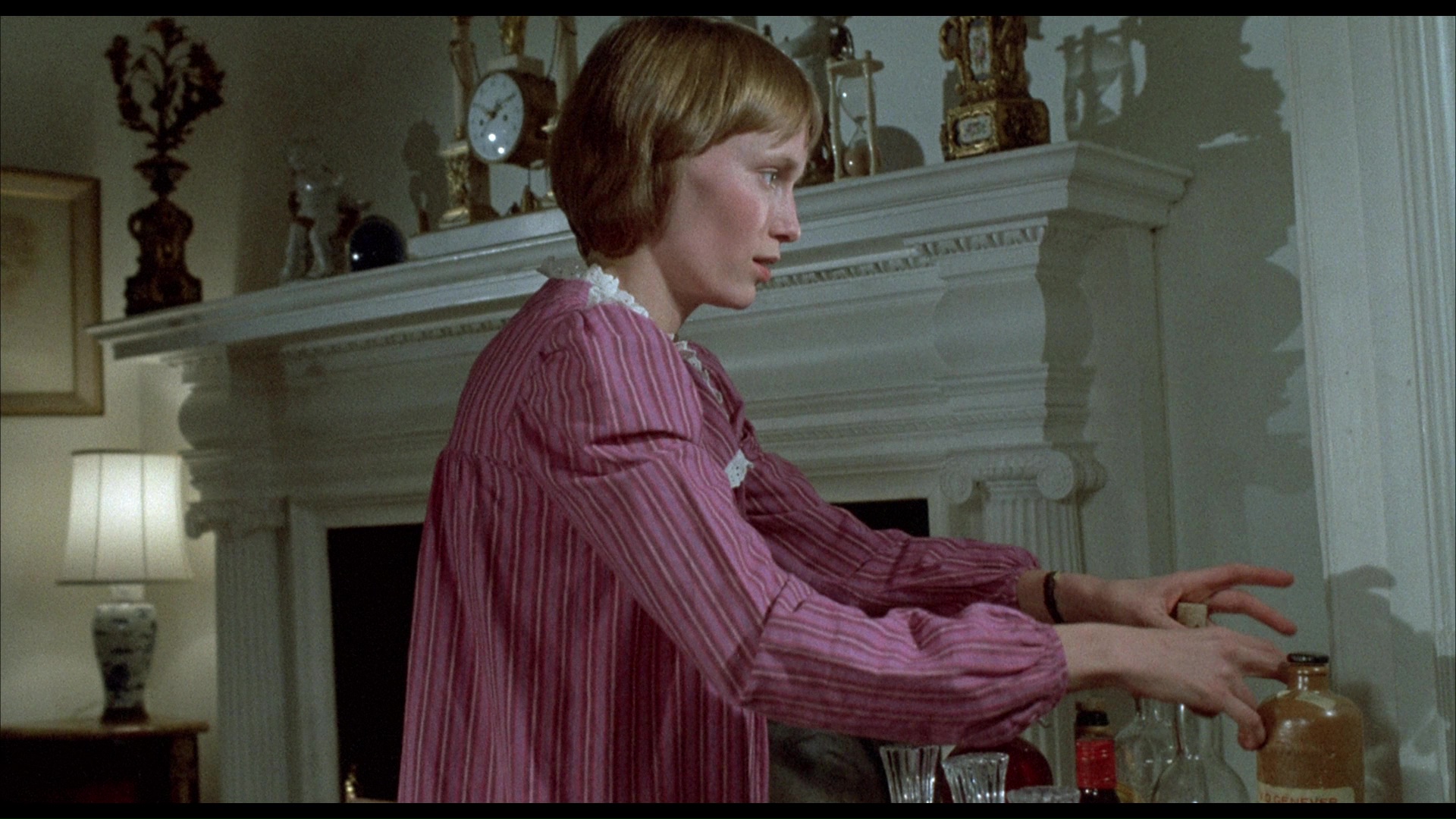 tense, chillingly
tense, chillingly 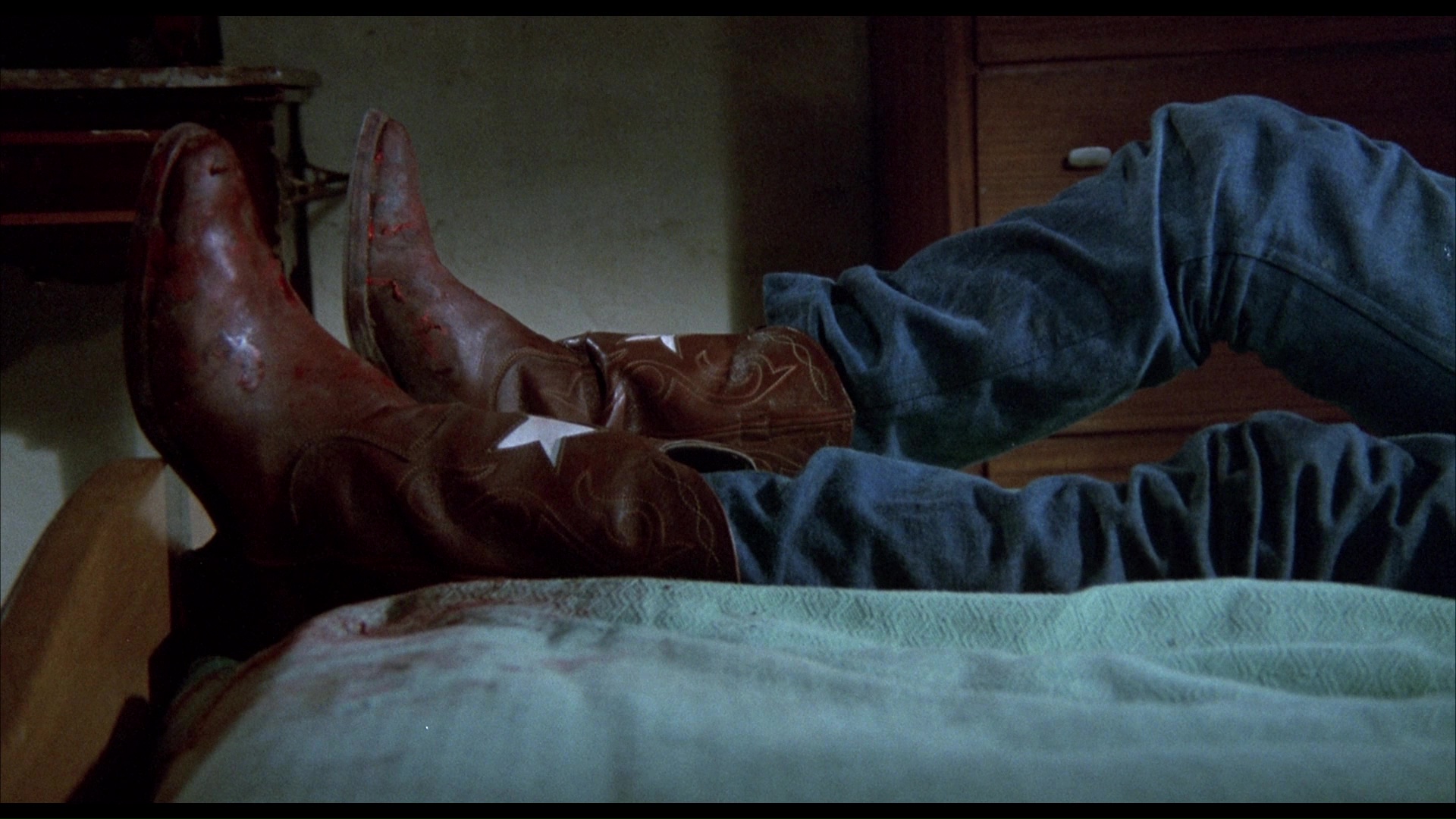 effective thriller, See No Evil occupies an interesting place in the careers of both its director, Richard Fleischer (who was in the midst of a remarkable crime film run with The Boston Strangler, 10 Rillington Place, and The New Centurions), and screenwriter Brian Clemens. Though he'd been writing for the big and small screens for years, Clemens didn't really hit it big until he wrote many of the most exceptional episodes of The Avengers (from the Emma Peel and Tara King era), which he parlayed into writing such films as And Soon the Darkness, The Golden Voyage of Sinbad, and The Watcher in the Woods, not to mention a brief spell at Hammer with Captain Kronos - Vampire Hunter (which he also directed) and Dr. Jekyll & Sister Hyde. This film shows off Clemens at his best, using a can't-miss central hook (in this case, a blind girl slowly realizing she's trapped in a house with multiple corpses and a serial killer) as a springboard for clever plotting and simple but sympathetic characters. In fact, the concept worked so well Clemens tweaked it two years later for "The Eyes Have It," an episode of his excellent horror-mystery anthology series for ITV, Thriller, with a school for the blind as the backdrop for a murder plot.
effective thriller, See No Evil occupies an interesting place in the careers of both its director, Richard Fleischer (who was in the midst of a remarkable crime film run with The Boston Strangler, 10 Rillington Place, and The New Centurions), and screenwriter Brian Clemens. Though he'd been writing for the big and small screens for years, Clemens didn't really hit it big until he wrote many of the most exceptional episodes of The Avengers (from the Emma Peel and Tara King era), which he parlayed into writing such films as And Soon the Darkness, The Golden Voyage of Sinbad, and The Watcher in the Woods, not to mention a brief spell at Hammer with Captain Kronos - Vampire Hunter (which he also directed) and Dr. Jekyll & Sister Hyde. This film shows off Clemens at his best, using a can't-miss central hook (in this case, a blind girl slowly realizing she's trapped in a house with multiple corpses and a serial killer) as a springboard for clever plotting and simple but sympathetic characters. In fact, the concept worked so well Clemens tweaked it two years later for "The Eyes Have It," an episode of his excellent horror-mystery anthology series for ITV, Thriller, with a school for the blind as the backdrop for a murder plot. 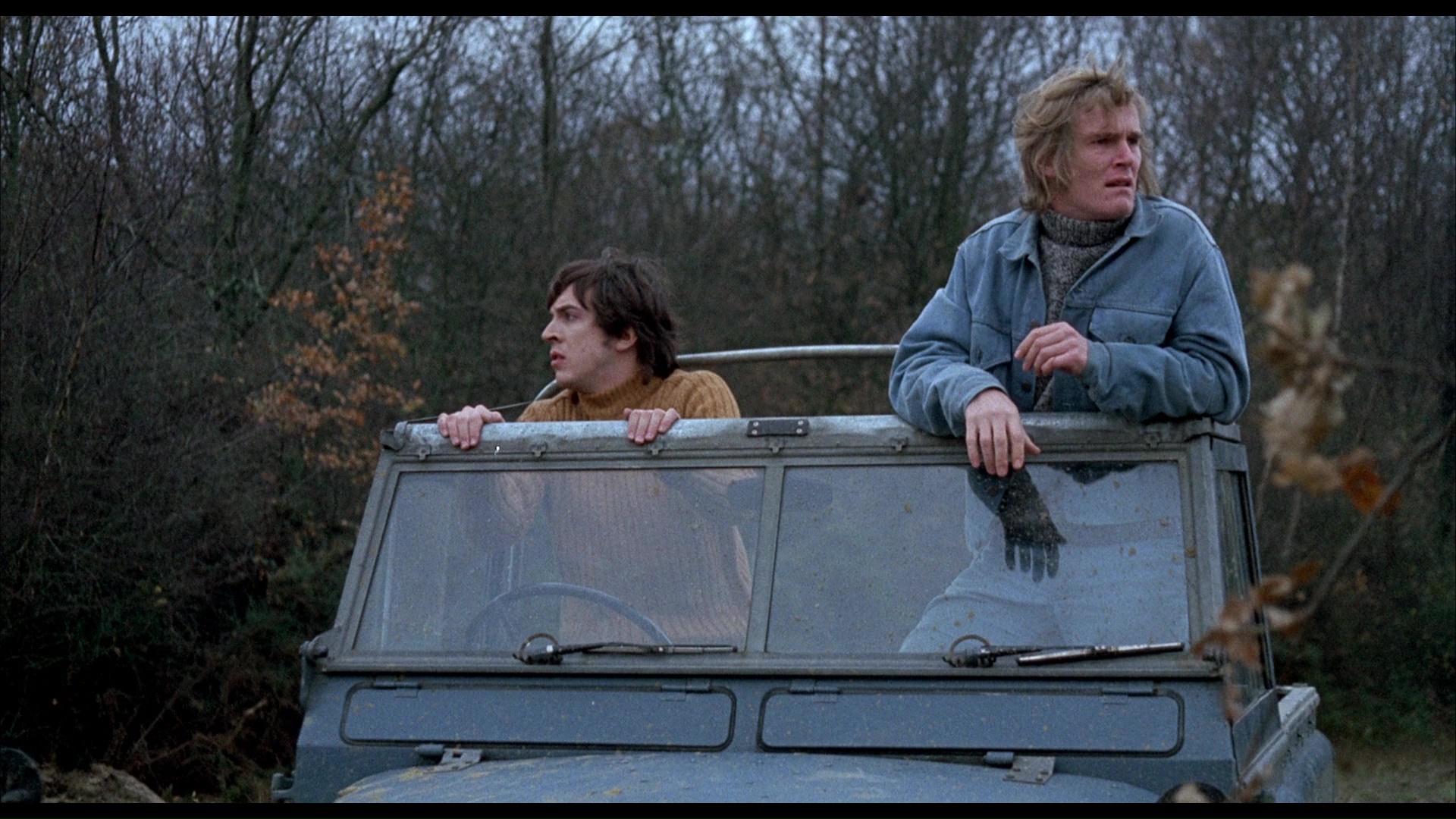
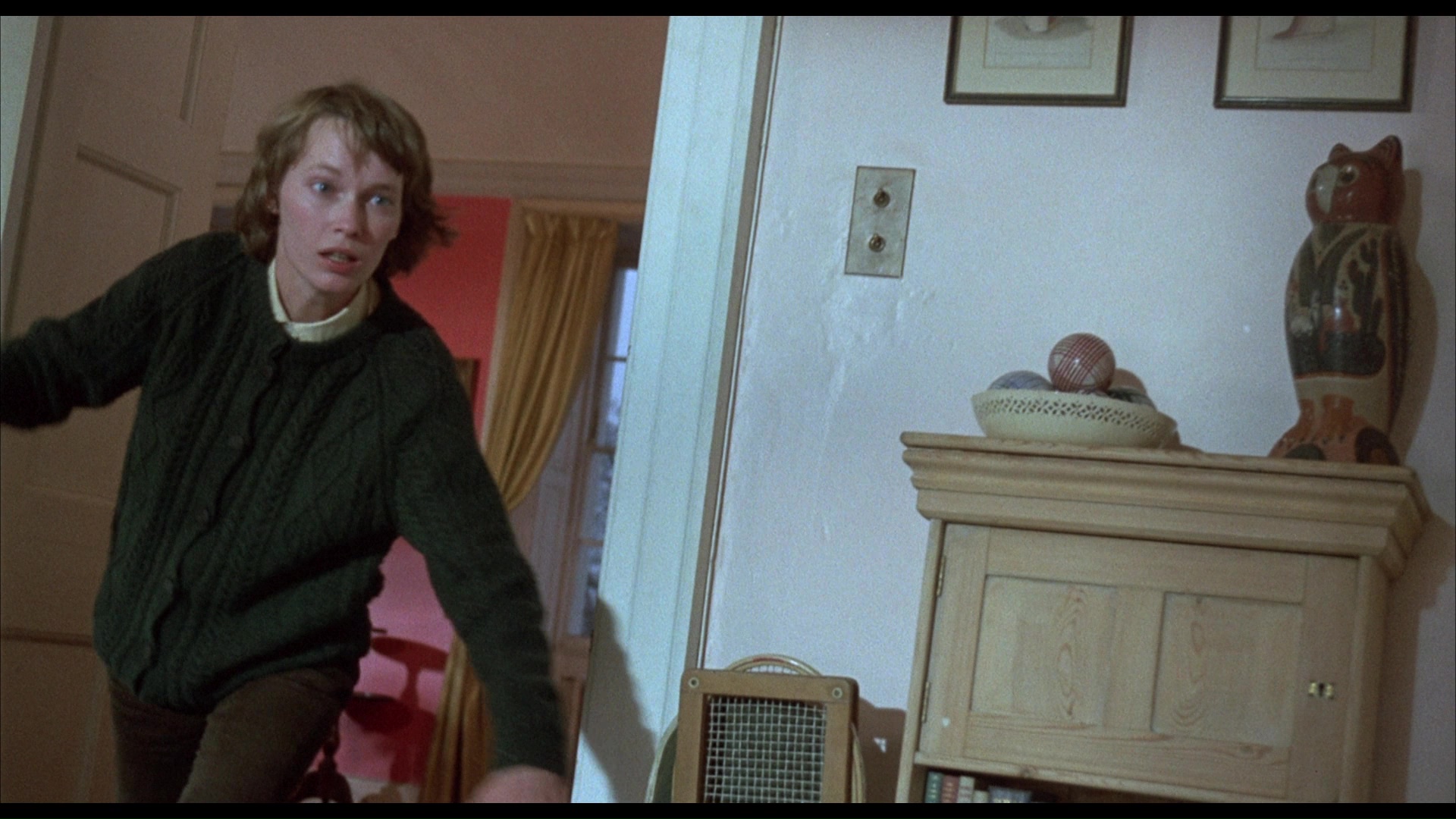 horse-riding accident, but she's coping well enough and even has a budding romance with neighbor Steve (The Confessional's Eshley, also seen in another standout Clemens episode of Thriller, "The Color of Blood"). After spending an idyllic afternoon with Steve, Sarah comes home to find the house quite and eerily empty... or so she thinks, since the entire family has been murdered, and the nightmare is just about to begin.
horse-riding accident, but she's coping well enough and even has a budding romance with neighbor Steve (The Confessional's Eshley, also seen in another standout Clemens episode of Thriller, "The Color of Blood"). After spending an idyllic afternoon with Steve, Sarah comes home to find the house quite and eerily empty... or so she thinks, since the entire family has been murdered, and the nightmare is just about to begin. 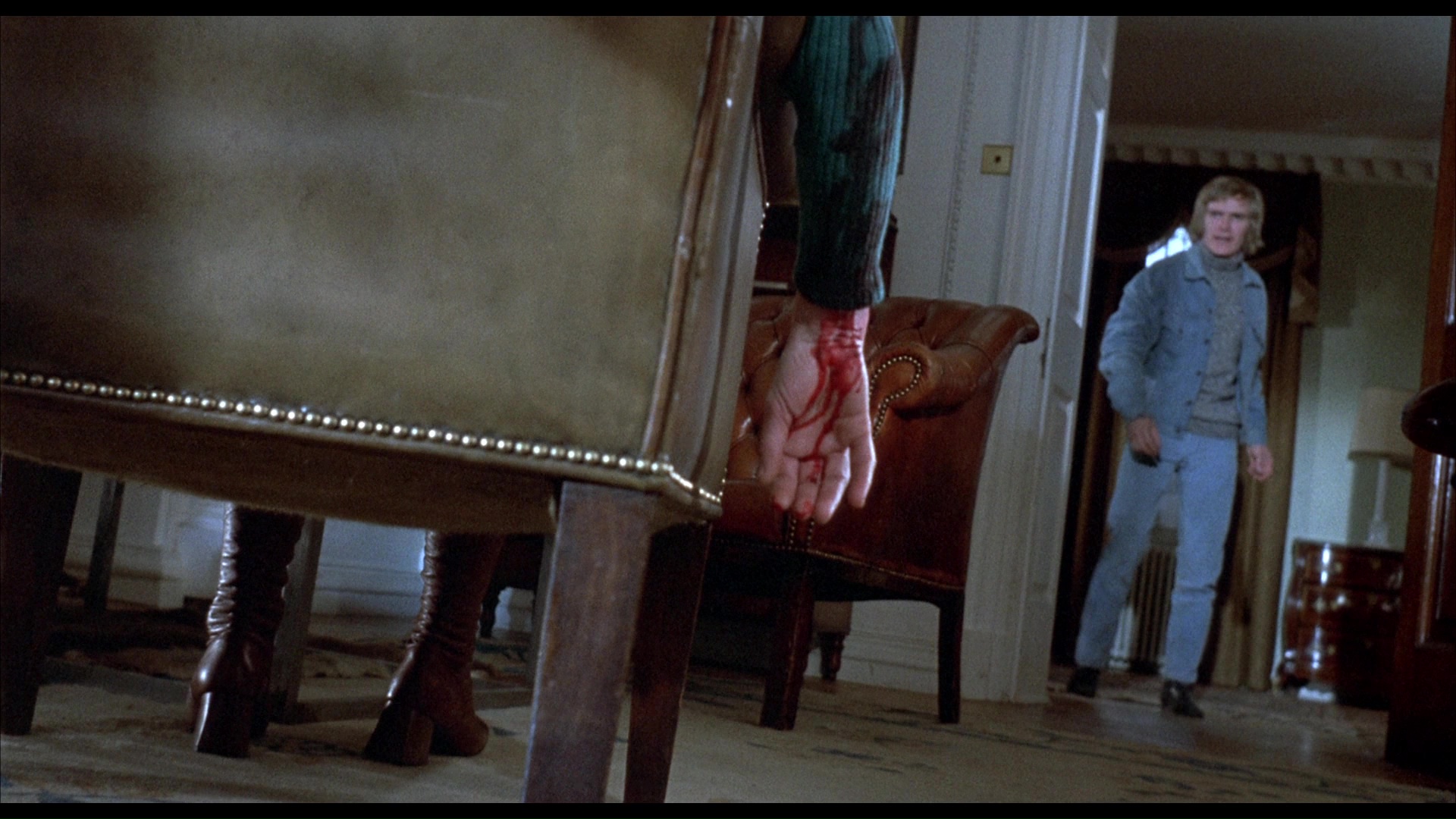 how real violence can be more difficult to predict when
how real violence can be more difficult to predict when 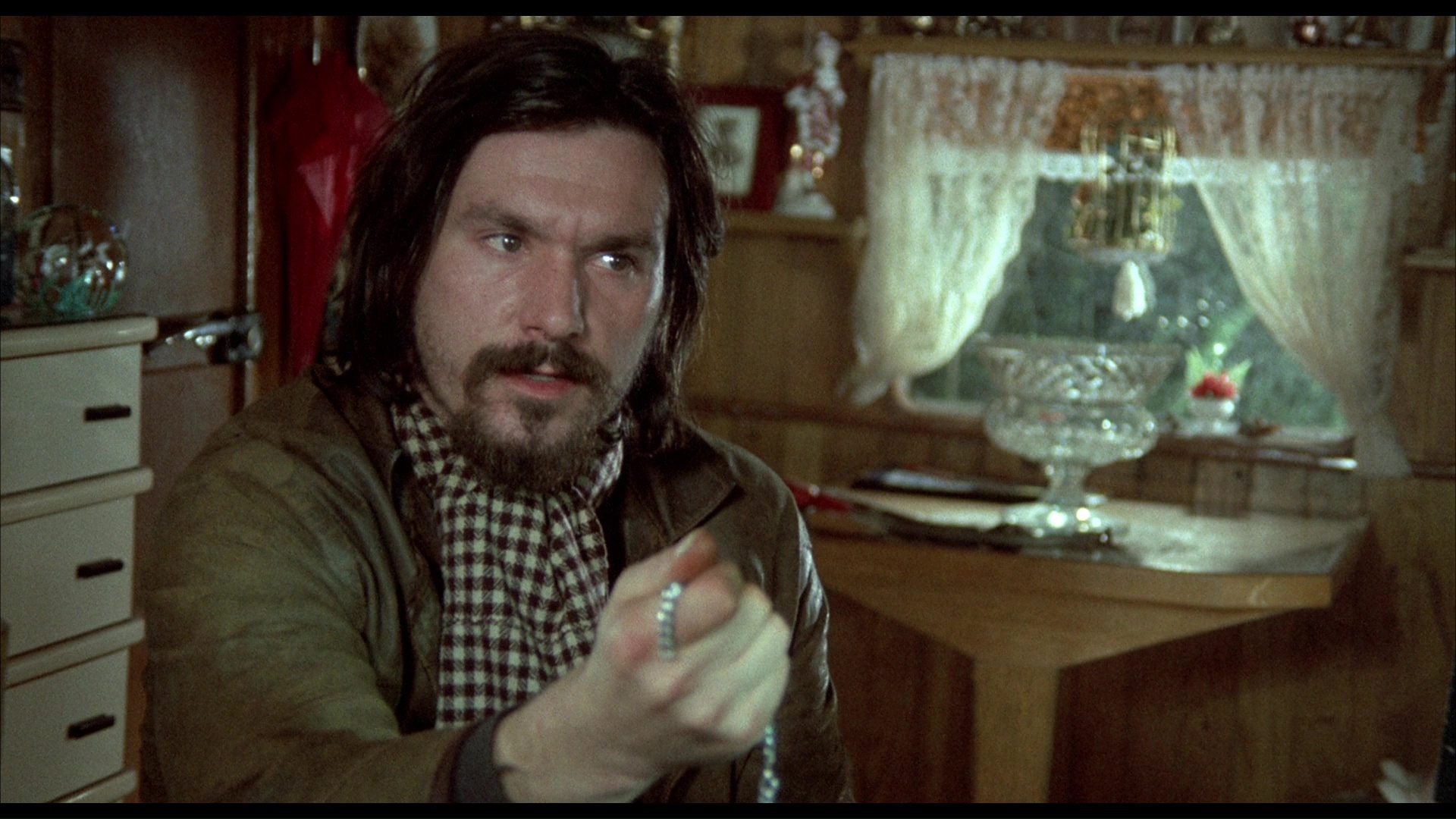 you're surrounded by simulations of it everywhere you look. Farrow is fragile and effective as she commands the bulk of the running time, often without any other actors around, with the great Elmer Bernstein lending expert support with a sparing but effective music score including an aggressive main theme and a haunting bit of lyricism for Farrow's character.
you're surrounded by simulations of it everywhere you look. Farrow is fragile and effective as she commands the bulk of the running time, often without any other actors around, with the great Elmer Bernstein lending expert support with a sparing but effective music score including an aggressive main theme and a haunting bit of lyricism for Farrow's character. 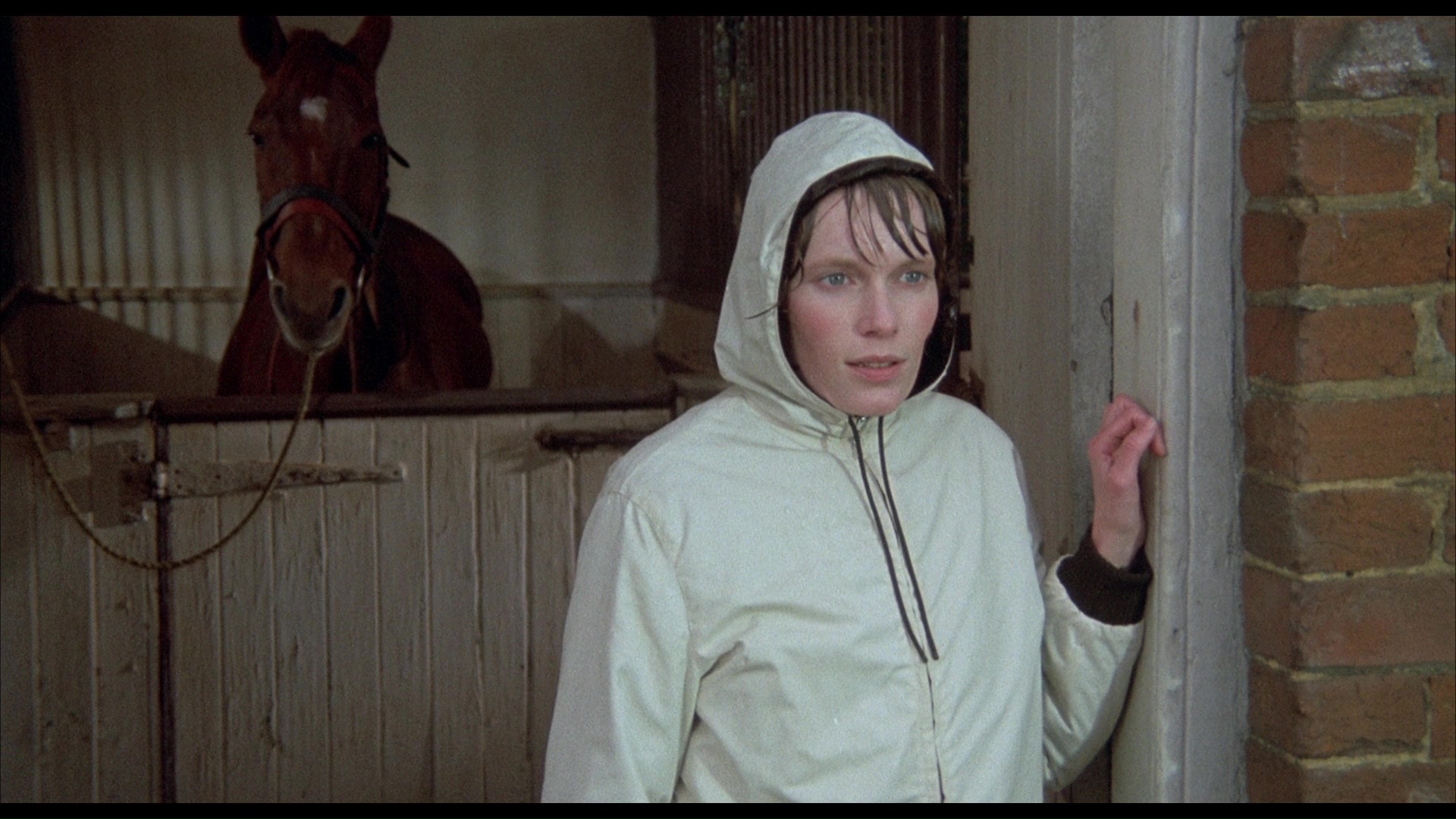 2017 dual-format UK release from Indicator, which features an adept encoding of the already superb transfer (with LPCM English mono and optional SDH subtitles), identical in appearance to the French disc, as well as a nice selection of extras for a film that seemed destined to never get the special edition treatment.
2017 dual-format UK release from Indicator, which features an adept encoding of the already superb transfer (with LPCM English mono and optional SDH subtitles), identical in appearance to the French disc, as well as a nice selection of extras for a film that seemed destined to never get the special edition treatment. 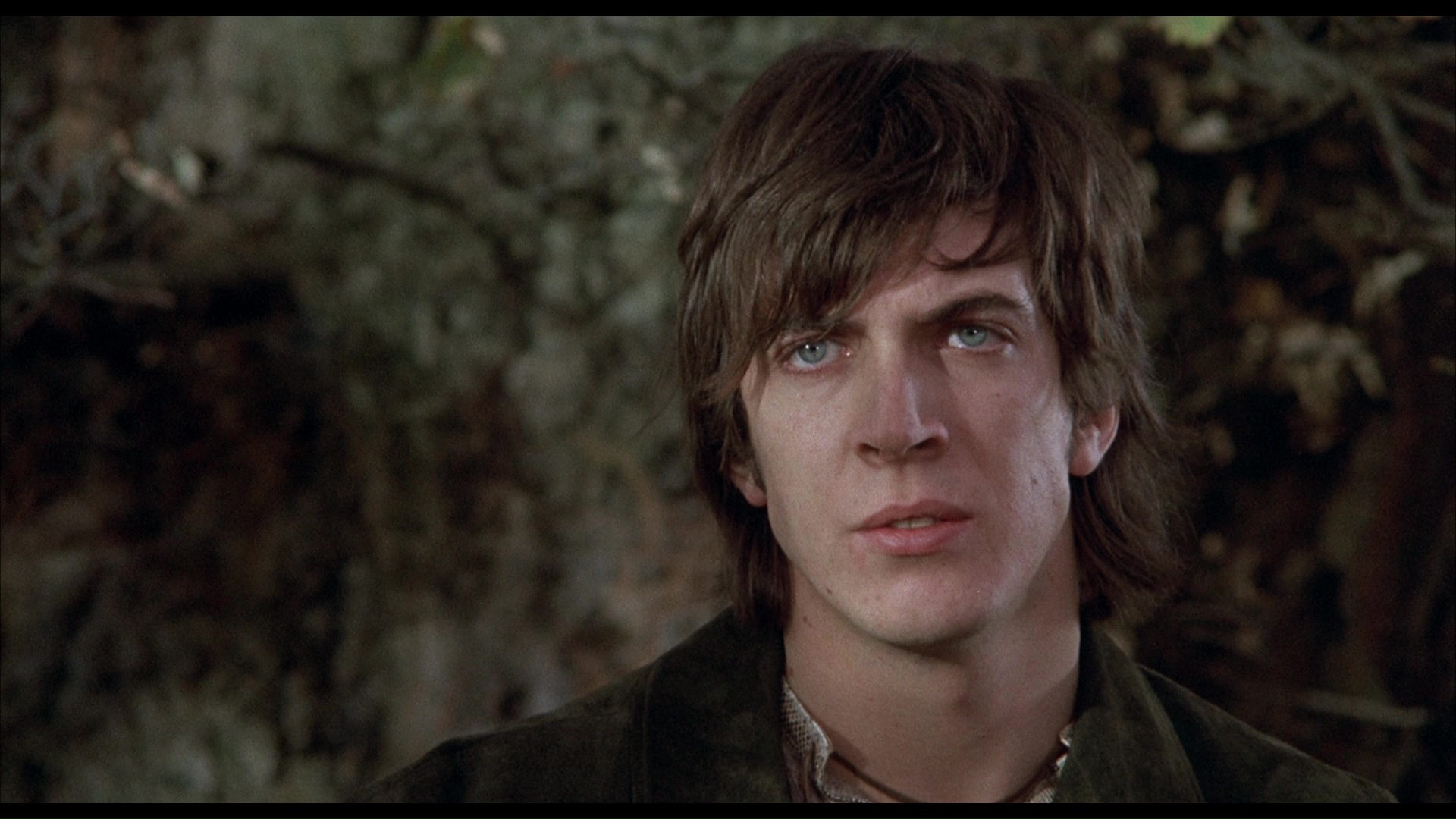 Chief among them is the entire UK version, Blind Terror, which clocks in at 87m30s (with a 25s text card at the beginning). Rather than a cut-down version of the standard See No Evil, it's actually a variant with some notable editorial differences scattered through the first 40 minutes (with a little one at the end as well). The story and tone of the film don't change, but the differences in cutaways and shot lengths are fascinating to spot. This version is presented mostly in HD with a handful of SD inserts where necessary. "The Two Versions" (7m22s) offers a useful side-by-side comparison of the variant cuts, pointing out some exclusive shots and noting how the focus of some scenes shifts based on editorial decisions. Eshley appears for a new video interview (11m19s) reflecting on making this film while appearing in a play at night during the shoot, admiring Fleischer's Tora! Tora! Tora!, offering a goofy disclaimer to Farrow before their kissing scene, and enjoying a lengthy acting career on both the stage and the big screen. Also included are an alternate Italian main title sequence (Assassinio al convento!), the U.S. theatrical trailer, and separate galleries of promotional material (93 images) and on-set photography (34 images). As usual, the packaging includes a welcome, illustrated liner notes booklet featuring a new essay by Chris Fujiwara, a text interview with Fleischer, and a sample of reviews from the theatrical release.
Chief among them is the entire UK version, Blind Terror, which clocks in at 87m30s (with a 25s text card at the beginning). Rather than a cut-down version of the standard See No Evil, it's actually a variant with some notable editorial differences scattered through the first 40 minutes (with a little one at the end as well). The story and tone of the film don't change, but the differences in cutaways and shot lengths are fascinating to spot. This version is presented mostly in HD with a handful of SD inserts where necessary. "The Two Versions" (7m22s) offers a useful side-by-side comparison of the variant cuts, pointing out some exclusive shots and noting how the focus of some scenes shifts based on editorial decisions. Eshley appears for a new video interview (11m19s) reflecting on making this film while appearing in a play at night during the shoot, admiring Fleischer's Tora! Tora! Tora!, offering a goofy disclaimer to Farrow before their kissing scene, and enjoying a lengthy acting career on both the stage and the big screen. Also included are an alternate Italian main title sequence (Assassinio al convento!), the U.S. theatrical trailer, and separate galleries of promotional material (93 images) and on-set photography (34 images). As usual, the packaging includes a welcome, illustrated liner notes booklet featuring a new essay by Chris Fujiwara, a text interview with Fleischer, and a sample of reviews from the theatrical release.